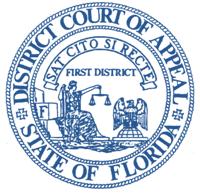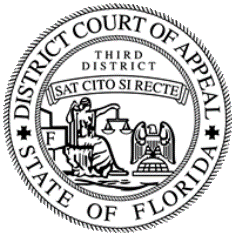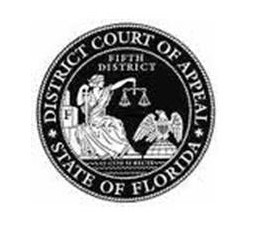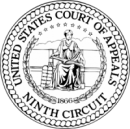The U.S. Bankruptcy Court for the Southern District of Florida recently held that a wholly unsecured second mortgage lien may be “stripped off,” even if the property encumbered by the lien is no longer part of the bankruptcy estate due to abandonment by the bankruptcy trustee. The Bankruptcy Court did not specifically reference the consolidated cases now before the U.S. Supreme Court in Bank of Amer. v. Toledo-Cardona, and Bank of Amer. v. Caulkett, which should resolve the issue of whether a wholly unsecured lien may be stripped off in a Chapter 7 bankruptcy. However, the Court noted that, “[a]t…
Posts published in May 2015
The Florida First District Court of Appeal recently affirmed a trial court’s dismissal of a follow up foreclosure action based on res judicata to the extent the default date was the same as that in the first action, which had been dismissed for failure to prosecute. However, the Court reversed the trial court’s dismissal of the foreclosure action with prejudice and cancellation of the note and mortgage as a sanction because the trial court failed to make the requisite findings of fact. In addition, the Court held that Florida law allows a subsequent foreclosure action based on subsequent and different…
As big data grows, so does the scale of TCPA violations, and with that the settlements; one of the largest in TCPA history was in the news last week. In a California district court, attorneys who guided consumers in suing a bank for a $32 million settlement were denied a bid to increase their fees to $8 million. The settlement was the largest TCPA deal to be approved at the time, settling the case in which the plaintiffs claimed they had received automated phone calls from the defendants without their consent. However, this past July saw a $75.5 million settlement granted preliminary approval in…
The Florida Third District Court of Appeal recently reversed a trial judge’s refusal to admit a loan payment history into evidence, holding that the foreclosing mortgagee properly demonstrated that the payment history was a business record, even though its witness started working for the mortgagee in 2012 and the payment history included information since 2005. A copy of the opinion is available at: http://www.3dca.flcourts.org/Opinions/3D13-0910.pdf The mortgagee started servicing the loan in 2005. The borrowers defaulted in 2009 and the mortgagee sued to foreclose. At trial, the mortgagee called a “mortgage resolution associate,” who had worked at the mortgagee only since 2012, who…
The Florida First District Court of Appeal recently affirmed a monetary judgment against a borrower in a follow up action to collect the balance owed on a note secured by a mortgage. The follow up action was consolidated with a prior foreclosure action in which the court reserved jurisdiction to enter a deficiency judgment. A copy of the opinion is available at: https://edca.1dca.org/DCADocs/2014/0930/140930_DC05_05012015_101049_i.pdf. The plaintiff bank sued to foreclose its mortgage on the borrower’s property in 2008. The complaint also requested a deficiency judgment. The trial court entered summary judgment against the borrower, reserving jurisdiction to enter a deficiency judgment. The plaintiff mortgagee was…
The Supreme Court of Ohio recently held that, although the plaintiff in a mortgage foreclosure action must have standing to sue when suit is filed, standing can be proven after the case is filed. A copy of the opinion is available at: http://www.supremecourt.ohio.gov/rod/docs/pdf/0/2015/2015-Ohio-1484.pdf The plaintiff mortgagee sued to foreclose its mortgage in 2010 after borrowers defaulted on the promissory note. The complaint did not seek a deficiency because the borrowers’ personal liability had been discharged in bankruptcy. One of the borrowers filed an answer raising lack of standing as a defense. The mortgagee moved for summary judgment, supporting its position on…
The District Court of Appeal of Florida for the Fifth District recently held that a trial court’s refusal to extend the duration of a lis pendens on real property was a departure from the essential requirements of law. A copy of the opinion is available at: http://www.5dca.org/Opinions/Opin2015/042715/5D14-4009.op.pdf Due to a scrivener’s error by the closing agent, the real property that was supposed to have secured a loan was not encumbered by the mortgage. The lender sued to reform the loan documents and foreclose or, in the alternative, to impose an equitable lien against the subject property. The lender moved to extend…
The U.S. Court of Appeals for the First Circuit recently dismissed a borrower’s appeal as moot because the borrower and loan servicer entered into a loan modification agreement while the appeal was pending, meaning the borrower was no longer subject to any actual or threatened foreclosure proceedings. A copy of the opinion is available at: Link to Opinion In 2005, the borrower obtained a $200,000 loan secured by a mortgage on her home. The mortgage was assigned twice, the last one to a bank as trustee. The first assignee, to whom the note was transferred along with the mortgage, endorsed…
The US. Court of Appeals for the Ninth Circuit recently reversed a district court’s order remanding a class action to state court, holding that a second removal was proper and timely-filed 30 days after the state court entered an order that expanded the class definiton after the first removal. A copy of the opinion is available at: http://cdn.ca9.uscourts.gov/datastore/opinions/2015/04/01/15-55176.pdf The plaintiff, an assistant store manager at a nationwide chain of discount retail stores, filed this action in state court in July of 2012, alleging that the employer supposedly violated the California Labor Code by denying 10-minute rest breaks to its employees. As…








